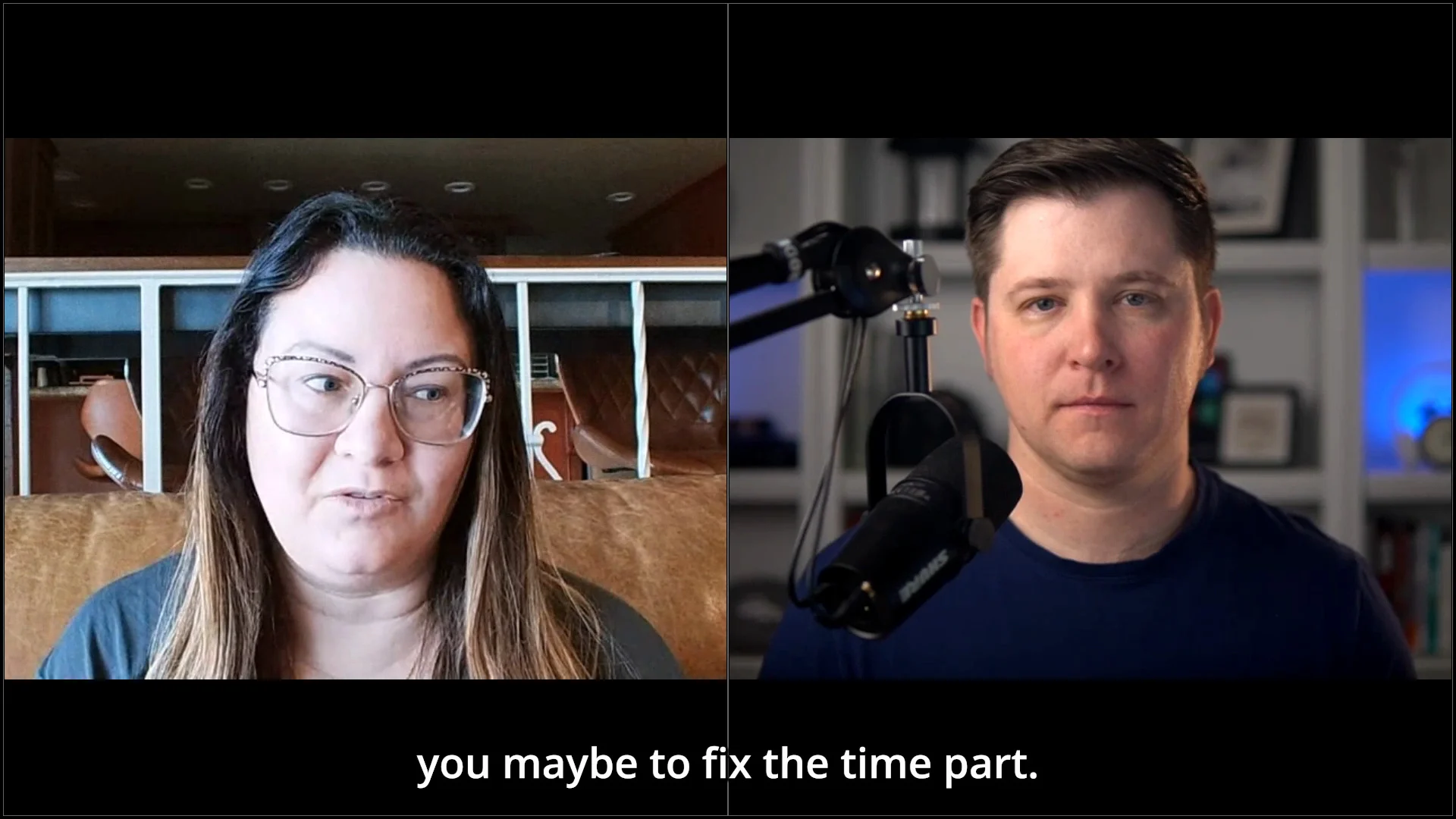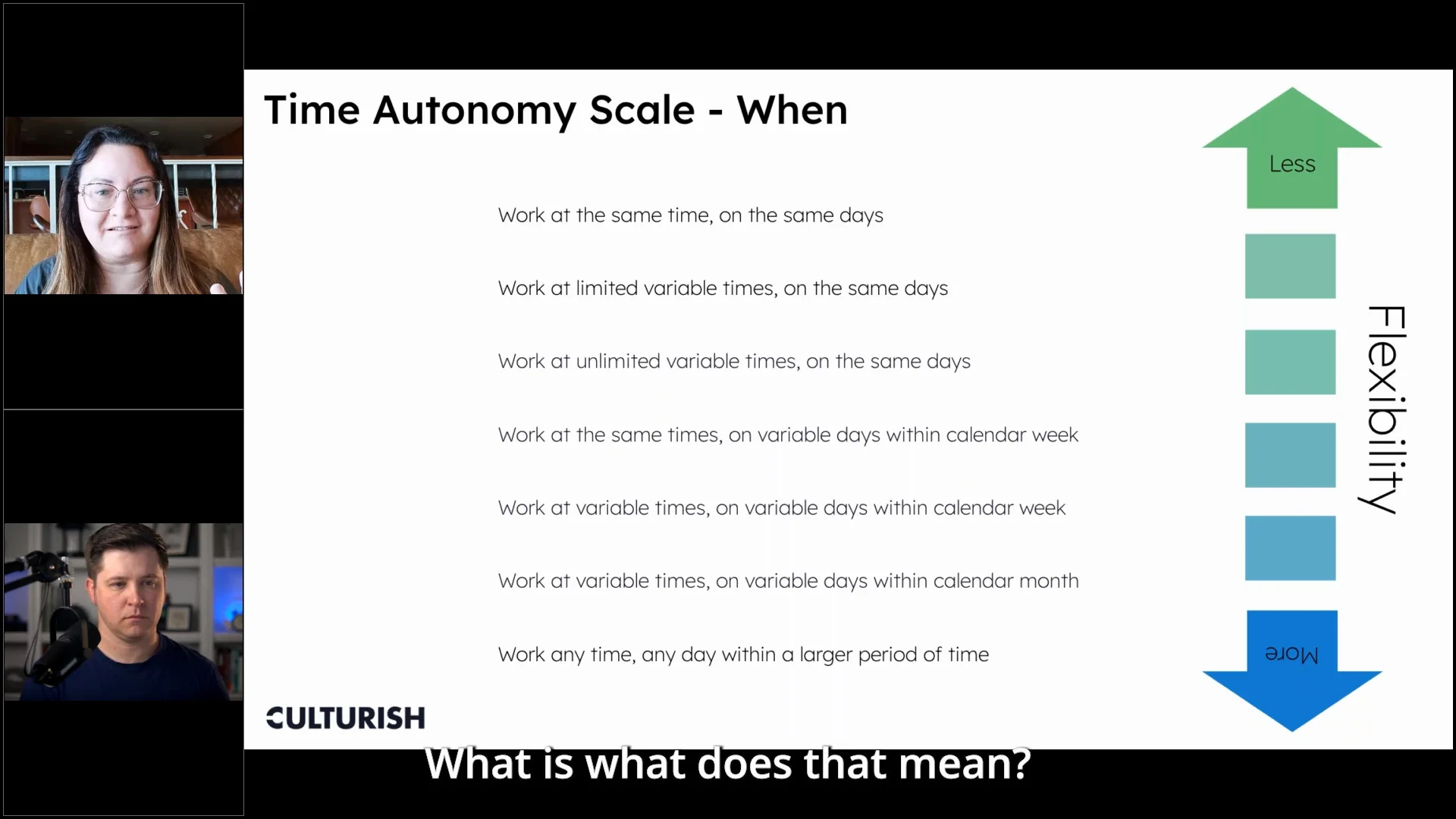We’ve all heard the phrase “time is money.”
But for agencies, time is about so much more than profitability. Spending too little (or, indeed, too much) time on what’s important can also have a huge impact on your work culture and team morale.
We recently hosted an insightful webinar with Nicole Pereira, the Remote Culture Advisor at CULTURISH, where she shares her knowledge on how designing time autonomy can create happier and more functional work environments.
As a recognized thought leader in remote culture building, and winner of HubSpot’s first-ever “Authentic Service Award,” Nicole offers some clever processes and methods that can be easily repeated at other organizations.
In the webinar, you’ll hear:
Nicole’s journey starting and growing her agency, Remotish
Key learnings from her time autonomy experiments
How to design your own time autonomy system
Before you watch the full episode, here are the four biggest takeaways we learned from the discussion.
1) Learn the three elements of time autonomy: Where, when, and how much

If the past few years have taught agency leaders anything, it’s that employees increasingly want more time autonomy over “where”, “when”, and “how much” they work.
Put simply, time autonomy means giving your employees the freedom to work in the way that suits them best. And according to research by Jabra, most employees now see flexibility as a higher priority than salary or benefits – so it’s an important one to get right!
According to Nicole, who started a remote agency well before Covid-19 forced businesses to adopt new ways of working, you need to align your culture around these three elements in order to thrive today:
“If you’re an agency owner or in a position of power, you need to reframe how you’re thinking about and delivering time in your organization – not just how you service your clients, but the organizational design of your company. Then you’ll find that you’ll be able to compete much better in this post-Covid world.”
The takeaway: As an agency owner, you need to evaluate the three elements of time autonomy – “where”, “when,” and “how much” – to understand where you fit on the scale. It’s only then that you’ll be able to build a successful organizational framework.
2) Build a work environment that you would thrive in
Business, like time, isn’t always about the money.
If you think back to the reasons why you started your own agency, it’s likely that a combination of factors contributed to your decision making. And according to research by Cox Business, the desire to be independent is top of the list for most business owners.
But Nicole believes this autonomy shouldn’t be the reserve of those at the top. To truly thrive as an agency, you need to make sure the whole organization benefits:
“I’m a person who believes that if I’m being afforded certain freedoms, everyone else should too. I went into business for financial freedom, for time freedom, for creative freedom. And I want everyone who’s with me to experience that.”
Why? Well, because “if I’m thriving, then I know others will be too.” Well said, Nicole!
The takeaway: Remember the reasons why you started your agency, and consider taking your employees on this journey with you. Giving the gift of time and flexibility could be just what you need to improve team morale and boost productivity.
3) Remote work only succeeds when it is clearly defined

During the webinar, you’ll hear Nicole talk about “scales of autonomy.” In other words, there isn’t a one-size-fits-all approach to defining what autonomy means (or should mean to your organization) across the three stages of “where”, “when,” and “how much.” For example, where people work can be anything from an office in a fixed location to living and working anywhere, anytime.
As webinar host and Teamwork’s Head of Partnerships, Logan Lyles puts it: “Where we work isn’t a yes or no – it’s a spectrum. There are layers to determine where you’re at on the spectrum, and letting your people know what this means will enable you to build your culture accordingly.”
Nicole adds: “Everyone went remote in 2020 and it was a disaster because everyone’s definition of it was different. Somebody's like, I’m going remote, but I still have to work from nine to five. I still have to have my camera on. I still have to go to the office twice a week. There’s not just one definition of what flexibility can give you.”
For Nicole, getting flexibility right is about setting clear parameters and expectations with your staff: “You just need to define what you’re willing to tolerate, and put boundaries around it so that flexibility is clearly understood.”
And when it comes to flexibility, you don’t have to give everything away all at once. Nicole says: “If you can start to become a little more flexible in very small ways, it could have a huge impact. If you’re defining how much choice and control you’re giving to your employees, it doesn’t feel chaotic because you define it and set boundaries.”
The takeaway: Everyone’s interpretation of what flexibility means is different. You may have an idea in your head about how far you’re willing to go with it, but your staff may be unsure. To get it right, you need to clearly define what the boundaries and expectations are – you’ll be surprised how much of a difference this can make!
4) Increased autonomy creates a culture of accountability
A surprising consequence of giving more autonomy to staff is that it can create a culture of accountability.
According to Nicole, linking time management to work-life balance (rather than agency efficiency and profitability) gives your employees added motivation to track their time accurately:
“All of a sudden, people are more motivated to track time, not just because it’s for delivering client work, but because they’re able to make sure they’re not overworking.”
To get this right, Nicole recommends getting very granular with your time recording: “We track every Slack conversation we’ve had. We track every meeting that occurs. And because we tracked all this, we’re able to continue to optimize. We can collectively say, why are we as a company spending so much time on something this low value? And then don’t do it anymore.”
The takeaway: If your agency is struggling with time management, consider offering greater flexibility in order to create a culture of accountability. Also, get granular with your time recording to understand where efficiencies can be made.
Don’t miss out on valuable insights for agency growth
By changing your agency’s relationship with time, you can provide your team with more autonomy and create a happier and more productive workforce.
Watch the full recording here to learn more about designing your own time autonomy system.
:quality(90))
:quality(90))
:quality(90))
:quality(90))
:quality(90))
:quality(90))
:quality(90))
:quality(90))
:quality(90))
:quality(90))
:quality(90))